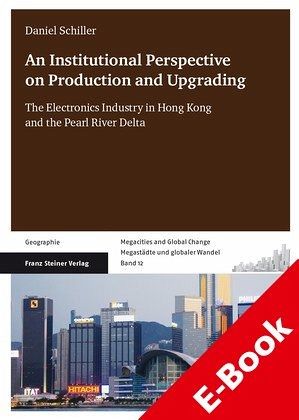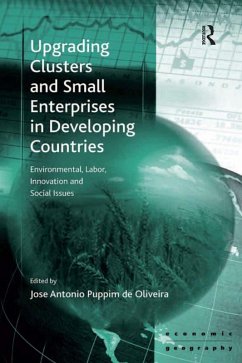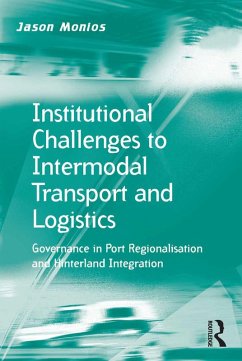
An Institutional Perspective on Production and Upgrading (eBook, PDF)
The Electronics Industry in Hong Kong and the Pearl River Delta

PAYBACK Punkte
0 °P sammeln!
Production and upgrading processes in emerging economies are studied by geographers and economists since many years. However, the relevance of institutions, in particular the informal ones, has not yet been fully understood. The institutional perspective of this e-book is relevant because regional production and innovation are embedded within multi-layered institutional settings which are enforced by actors at different spatial scales, e.g. local stakeholders, national policy makers, and multinational firms. This e-book analyses the electronics industry of the mega-urban region of Hong Kong an...
Production and upgrading processes in emerging economies are studied by geographers and economists since many years. However, the relevance of institutions, in particular the informal ones, has not yet been fully understood. The institutional perspective of this e-book is relevant because regional production and innovation are embedded within multi-layered institutional settings which are enforced by actors at different spatial scales, e.g. local stakeholders, national policy makers, and multinational firms. This e-book analyses the electronics industry of the mega-urban region of Hong Kong and the Pearl River Delta which is the world's most important production cluster of the industry. A conceptual discussion on the institutional approach to informality and an overview of methods to measure it set the scene for five empirical chapters. The description of the spatial and organisational transition of the electronics industry in the region is followed by a thorough analysis of the role of personal relations for doing business. Finally, the most important issue for the long-term competitiveness of the region is discussed: upgrading and innovation.
Dieser Download kann aus rechtlichen Gründen nur mit Rechnungsadresse in A, B, BG, CY, CZ, D, DK, EW, E, FIN, F, GR, HR, H, IRL, I, LT, L, LR, M, NL, PL, P, R, S, SLO, SK ausgeliefert werden.













